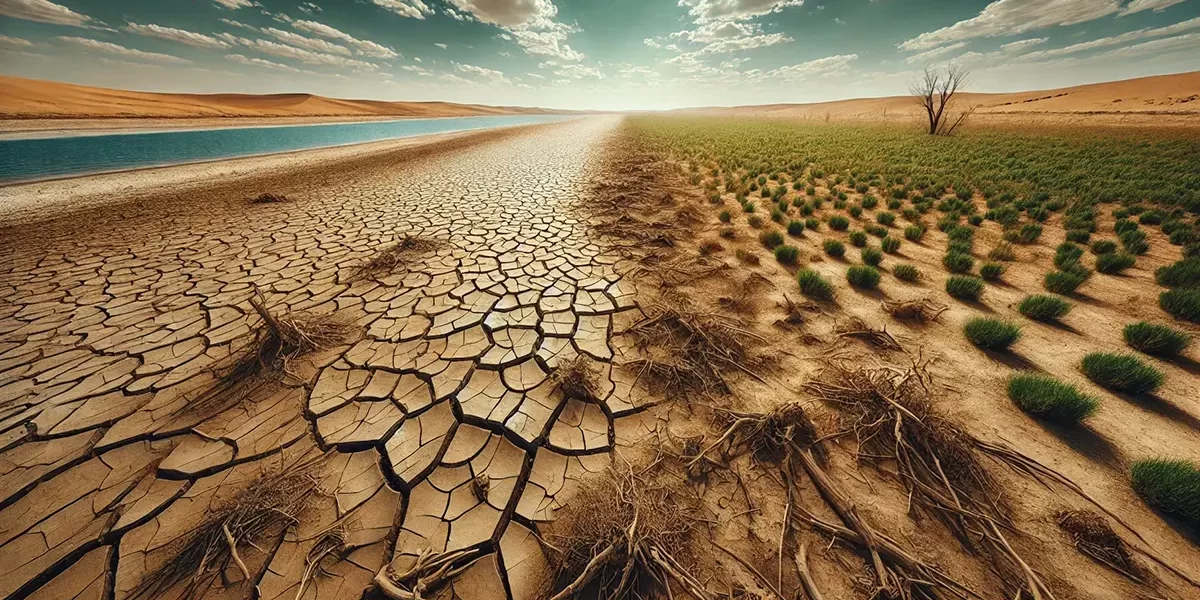As the world grapples with the urgent and multifaceted impacts of climate change, one of the most pressing and human-centric crises emerging is the displacement of populations due to water shortages.
This is a crisis that demands immediate attention and action. These individuals, often referred to as “climate refugees,” are forced to leave their homes as the availability of water dwindles.
Let’s explore the causes, impacts, and potential solutions to climate-induced displacement, focusing on water scarcity as a driving force.
Understanding Climate Refugees
Climate refugees, a term used to describe people who have been compelled to flee their homes due to environmental changes that undermine their ability to live in those areas, are a growing concern. Unlike traditional refugees, who are displaced by conflict or persecution, climate refugees are driven by environmental factors such as rising sea levels, extreme weather events, and, most critically, water scarcity.
Despite these challenges, communities have shown remarkable resilience in the face of displacement, inspiring hope for the future.
Causes of Water-Related Displacement
- Prolonged Droughts: Climate change has intensified droughts in many regions, particularly in parts of Africa, the Middle East, and South Asia. These prolonged periods of water scarcity make agriculture unsustainable, leading to food shortages and economic collapse, pushing communities to abandon their homes.
- Desertification: Expanding deserts and degrading once-fertile lands due to a lack of water contribute to losing livelihoods. As arable land becomes barren, people are forced to move to areas with better water availability.
- Depleting Water Sources: Over-extraction of groundwater and the drying up of rivers and lakes due to reduced rainfall are critical factors leading to water shortages. In regions where communities rely heavily on these natural water sources, depletion can render entire areas uninhabitable.
- Sea Level Rise and Saltwater Intrusion: Rising sea levels displace coastal communities and lead to saltwater intrusion into freshwater resources, contaminating drinking water supplies and agricultural land, making them unusable.
Impact of Displacement on Affected Populations
- Loss of Livelihoods: For many communities, especially in rural areas, agriculture and livestock are the primary sources of income. Water scarcity renders these activities impossible, leading to economic instability and forcing people to migrate.
- Health Crises: Displaced populations often face poor living conditions in overcrowded camps or informal settlements, where access to clean water, sanitation, and healthcare is limited, leading to the spread of diseases and health crises.
- Social Disruption: Displacement due to water scarcity often breaks social structures, as families and communities are torn apart. Losing cultural heritage and traditional ways of life can have long-lasting psychological and social impacts.
- Conflict and Tensions: The influx of displaced populations into new areas can lead to competition for limited resources, causing tensions and conflicts with the local population. This can further destabilise regions already vulnerable to the effects of climate change.
Addressing the Crisis of Climate Refugees
The international community must urgently recognise climate refugees as a distinct group requiring protection. This recognition is not just a moral imperative, but a necessary step towards addressing this growing crisis.
Investing in sustainable water management practices, such as rainwater harvesting, efficient irrigation, and the restoration of natural water bodies, can help mitigate the effects of water scarcity and reduce the need for displacement.
Addressing the root causes of climate change through global efforts to reduce greenhouse gas emissions is critical to slowing down the environmental changes that lead to water shortages. This underscores the need for collective action and the potential benefits of such efforts. Additionally, implementing adaptation strategies, such as building resilient infrastructure and developing drought-resistant crops, can help communities cope with water scarcity.
Providing humanitarian aid, including access to clean water, sanitation, and healthcare, is essential for displaced populations. Long-term solutions include integrating climate refugees into host communities and providing them opportunities to rebuild their lives.
Empowering local communities to manage their water resources through education and capacity-building can lead to more effective and sustainable solutions. Community-driven initiatives, such as water conservation programs and regional governance of water resources, are crucial in preventing displacement.
A Stark Reminder
The crisis of climate refugees driven by water shortages is a stark reminder of the interconnectedness of environmental health and human well-being. As climate change continues to reshape our world, the displacement of people due to water scarcity is likely to increase unless urgent and coordinated action is taken. By recognising the plight of climate refugees, investing in sustainable water management, and addressing the broader impacts of climate change, we can work towards a future where no one is forced to leave their home in search of the most basic necessity – water. The time to act is now before the trickle of climate refugees becomes a flood.
Optimising Water Resources
Scotmas is at the forefront of providing innovative solutions to water-stressed countries, helping them optimise their water resources to improve the quality of life for millions of people. Through advanced water treatment technologies and sustainable water management systems, Scotmas enables communities to maximise available water use, ensuring access to safe and clean water even in the most challenging environments.
Contact us today to learn more about our industry-leading water disinfection solutions.






